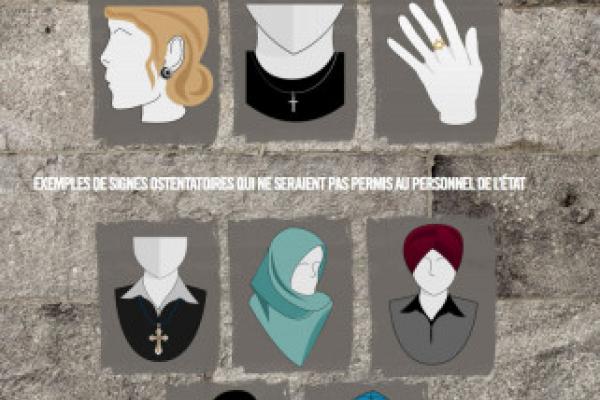A new public campaign in India uses powerful images of three Hindu goddesses with bruised faces to raise awareness about violence against women.
The ad campaign is titled “Abused Goddesses” and portrays the beaten faces of three Hindu female deities: Saraswati, Durga and Lakshmi.
“Today more than 68 percent of women in India are victims of domestic violence,” the caption reads. “Tomorrow it seems like no woman shall be spared. Not even the ones we pray to,” the posters say.
Retired Anglican Archbishop Desmond Tutu, who won the Nobel Peace Prize for his fight against apartheid in South Africa, continues to speak around the globe on justice and peace. Butler University and neighboring Christian Theological Seminary in Indianapolis announced Thursday that they would name a center for the 81-year-old icon.
Just before the announcement of the new center, Tutu spoke with Religion News Service about faith and justice, Israel and Palestine and Pope Francis’ recent selfie and lifestyle choices. Some answers have been edited for length and clarity.
Muslim stand-up comedy is nothing new. But what makes “The Muslims Are Coming” different is that it portrays what happens when a troupe of comedians performs before red state Americans in such places as Tennessee, Georgia, Alabama, Mississippi, Florida, Arizona, Utah and Idaho.
The documentary by Negin Farsad, an Iranian-American, and Dean Obeidallah, of Palestinian-Italian roots, opened in Chicago yesterday.
The income gap in the U.S. is as wide as it has been in almost 100 years, according to a new study by UC Berkeley, the Paris School of Economics, and Oxford University. The study, based on Internal Revenue Service statistics, reports that although the Great Recession hit the top 1 percent hard, the wealthy recovered more quickly than other income groups. The L.A. Times reports:
The 1929 stock market crash that preceded the Great Depression, followed by World War II, reduced an earlier national income gap for decades. But it began to grow again in the 1970s, and has widened since.
Saez attributes the trend not just to technology and job outsourcing, but to the reduced power of progressive tax policies and unions, along with "changing social norms regarding pay inequality."
Read more here.
Pope Francis’ friendly letter to atheists, published this week by Italy’s La Repubblica newspaper, has been cheered by Catholics who welcomed another sign of the pontiff’s new openness to the world beyond the Vatican walls.
But it has also prompted some gnashing of teeth among others, who are reacting to headlines about the pope’s letter like this one in the British newspaper The Independent:
“Pope Francis assures atheists: You don’t have to believe in God to go to heaven.”
Quebec’s government this week introduced its much-discussed Charter of Quebec Values, which would ban “overt and conspicuous” religious symbols worn by government employees.
Pushing the twin ideals of secularism and separation from Canada, the Parti Quebecois’ plan would prohibit public employees from wearing large crosses and crucifixes, Islamic headscarves, Sikh turbans, and Jewish yarmulkes as a way to establish “religious neutrality” in public.
The prohibitions would apply to civil servants, teachers, law enforcement officers, firefighters, doctors, nurses, and public day care employees.
Two weeks ago, it seemed that any minute the United States would begin bombing Syria. On Aug. 27, NBC’s top headline ran: “Military Strikes on Syria ‘as Early as Thursday,’ U.S. officials say.”
So our Quaker lobby did what all of us peace and security groups do when our country’s decision makers decide to bomb another country and we have long odds and little hope of success from stopping them: we flooded our network — including many of the inboxes of readers of this blog — with pleas to join us in writing, calling, and lobbying members of Congress and the Obama administration to stop this new war.
The pressure worked to postpone U.S. war plans. The groundswell of grassroots opposition to this war persuaded President Obama to go to Congress before launching Tomahawk cruise missiles into Damascus. A vote was expected in days, and then it was delayed, as an unprecedented outpouring of public opposition from Americans of every political stripe pushed Congress to pursue alternatives to military force.





